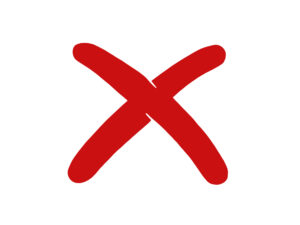How ethical and sustainable is Amstel?
Amstel is included in The Good Shopping Guide‘s Beer, Lager & Cider Ethical Ratings Table. Even if Amstel hasn’t yet upheld our ethical standards, we have faith that eventually the company will change for the better and conduct itself in a more morally upright manner. Amstel might boost customer confidence by submitting an application for Ethical Accreditation, which would involve a more thorough investigation and recommendations for ethical development.
More information on the issues that may be found in The Good Shopping Guide to Ethical Lager, Cider and Beer brands. Then, in our Beer, Lager and cider Ethical Ratings Table compare it to other brands.
What does Amstel do?
Amstel began in 1870, brewing high-quality beer. Now Amstel is available in 115 markets worldwide most known for its golden Amstel beer but has also released brand extensions such as Amstel Light, Amstel Lager, Premium Pilsener, Bright, Radler and ULTRA. Amstel is owned by Heineken and you can read more about the brand story here.
For which criteria does Amstel perform poorly?
Amstel received a low rating for Organic products, Vegetarian products and Public Record Criticisms. None of Amstel’s products are organic or vegetarian.
Past Criticisms of Amstel’s ethical record
Amstel faced criticism as its parent company Heineken scored D- on the As you Sow’s 2021 Corporate Plastic scorecard based on plastic packaging pollution. This looks at six main areas, such as Packaging Design, Reusable Packaging, Recycled content, Public Data transparency support for recycling and Producer Responsibility.
Heineken also ranked as Europe’s third worst plastic polluter by Break Free from plastic.
In what areas does Amstel score well for its ethics?
Amstel receives a high score for Environmental Report, Nuclear Power, Animal Welfare, Political Donations and Armaments. Heineken has a sustainability strategy including many future targets relating to the environment.
How can Amstel improve its Ethical Rating?
The Ethical Rating of a brand is divided into three categories by The Good Shopping Guide: the Environment, People and Animals. Find out more about how we rate and research brands here.
Amstel might apply for Ethical Accreditation for more detailed guidance on how to improve. Amstel may improve its rating and fulfil our fundamental ethical requirements by releasing either an organic or vegan beer range. The brand should also look at the public criticisms of the brand and how it could operate more positively.
Why not check out The Good Shopping Guide’s Ethical Accreditation if you work for or with a beer, lager or cider brand that places ethics and sustainability high on its priority list?
Contact us to learn more, or complete our short form for an Initial Ethical Evaluation.
Ethical performance in category
GSG score
GSG category benchmark
Ethical Rating
Environment
-
Environmental Report
Good
-
Genetic Modification
Poor
-
Organic
Poor
-
Nuclear Power
Good
-
Fossil Fuels
Good
Animal
-
Animal Welfare
Good
-
Vegetarian/Vegan Verified
Poor
People
-
Armaments
Good
-
Political Donations
Good
Other
-
Ethical Accreditation
Poor
-
Public Record Criticisms
Poor
-
Public Record Criticisms+
Poor
= GSG Top Rating = GSG Middle Rating = GSG Bottom Rating
